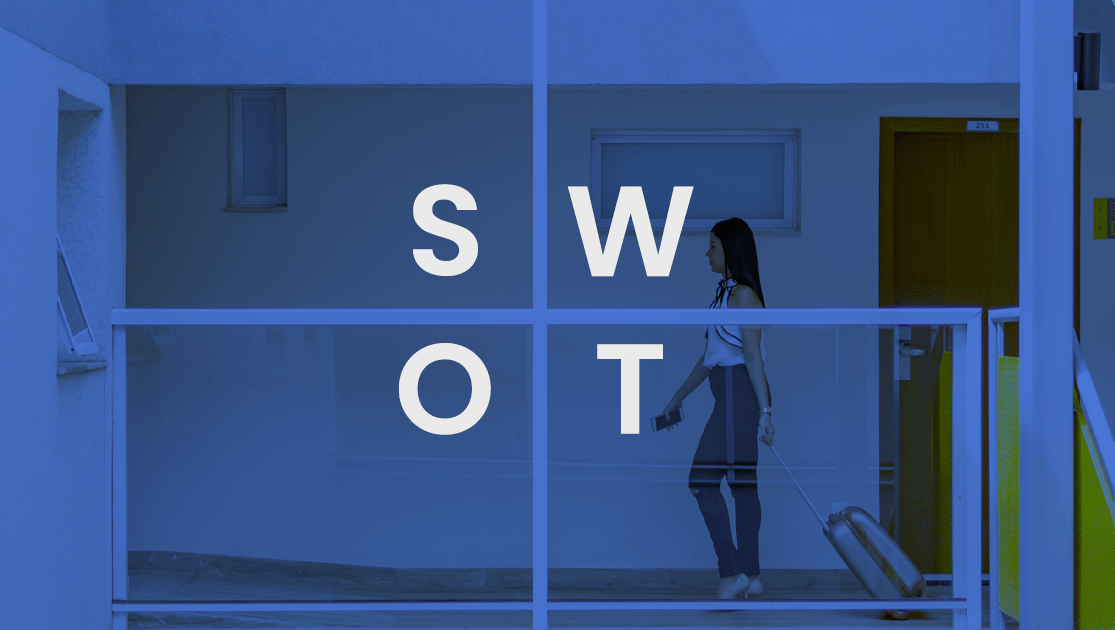Have you planned business objectives for your property? Do you know what opportunities and challenges are ahead for your hotel and what initiatives you should implement to succeed?
NB: This is an article from Cloudbeds, one of our Expert Partners
From luxury hotels to bed and breakfasts, boutique hotels, and hostels, every business in the hospitality industry should take time to evaluate its competitive position and find opportunities to enhance performance. A SWOT analysis is one of the best tools to help you make better decisions.
Subscribe to our weekly newsletter and stay up to date
What is a hotel SWOT analysis?
A SWOT analysis (or SWOT matrix) is a strategic planning tool that allows hoteliers to identify and understand internal and external factors that may impact their business and support decision-making.
In hotel management, the SWOT analysis framework serves as a guide to understanding the position of your hotel within the market and provides you with tools to improve and maximize your resource.
Using this analysis, you can assess your business to re-examine your competitive advantage, set clear objectives, and define action plans and strategies to take your business to the next level.
What does SWOT stand for?
The acronym SWOT stands for strengths, weaknesses, opportunities, and threats. When defining a business strategy and a roadmap for your property’s growth, you should focus on these four variables.
Why it matters?
A SWOT analysis is an important component of any business and marketing plan. Conducting a SWOT analysis can help properties of any size with:
- Scaling: assessing current performance and determining growth potential.
- Prioritization: identifying the most important initiatives and building a roadmap.
- Benchmarking: getting a clear overview of a property’s position in the market.
- Decision-making: getting a better understanding of how new strategies or market shifts may affect the business.
4 elements of a hotel SWOT analysis
Every SWOT analysis includes four variables, each of which is grouped into two categories: internal and external factors.
Internal factors
Internal factors are under your property’s control. This category considers your strengths and weaknesses.
Internal factors include:
- Services: quality and pricing
- Marketing: brand awareness, advertising, visibility, and positioning
- Management: internal processes and organization
- Human resources: recruiting, hiring, and retaining staff
- Finance: resources, profitability, and cash flow
- Guest experience: pre-stay, during-stay, and post-stay
1. Strengths
Strengths are the characteristics that make your property stand out from your competitors and position you in the market.
Here are some questions to help you discover your hotel’s strengths:
What is your property’s unique selling proposition?
What attracts guests to your property?
What are you already doing well?
What services do you offer?
What makes your property better than your competitors?
What makes your property profitable?
What resources do you have?
What are your performance metrics?





